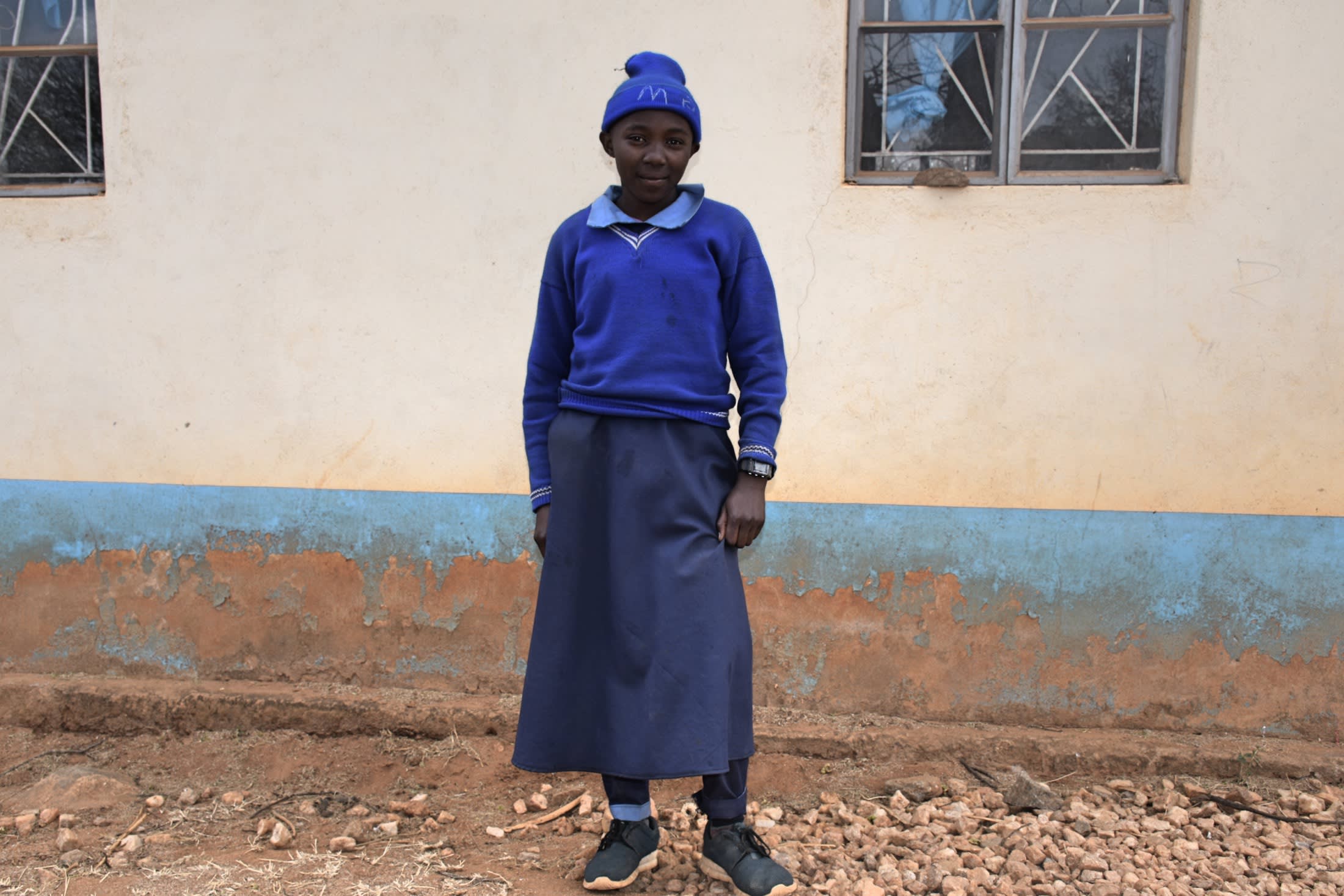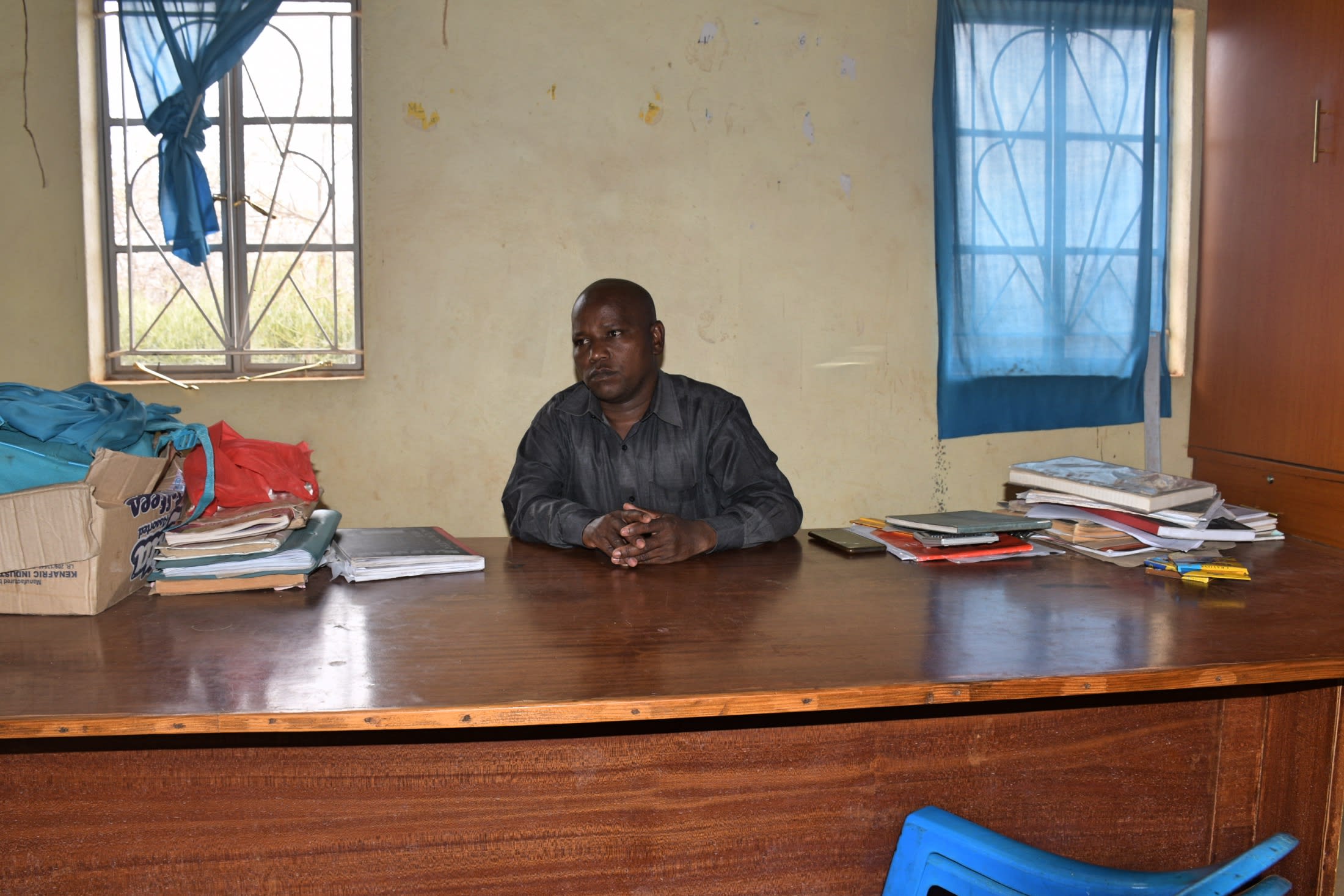Kisungula Primary School's 15,000-liter rainwater harvesting capacity is insufficient for all 276 students and 14 staff members. The tanks can't hold enough rainwater to serve the school for even a week after a rainstorm.
More often than not, students are mandated to carry water with them to school because the tanks are usually empty. Students get water from wherever they can in this arid region, and most of the time, their sources are scoop holes dug into a riverbed.
"We have to carry water from home, forcing me to arrive to school late," said 13-year-old Gloria M. (pictured below).

"For example, last week I was late because there was no water at home, and [I] had to borrow some from our neighbor, who had little to spare. When I arrived late, the teacher on duty gave me a punishment of collecting [some] liters [of water] around the school before going to class."
The school has never had adequate water, but the long drought periods and short, erratic rains of the last few years have only exacerbated the issue. Now, things are worse than ever. The school's agricultural program had to be put on hold because students couldn't secure adequate water to irrigate their crops. This impacts the students' futures, as they won't be able to take their agricultural exams until the school's water difficulties are resolved.
Student morale and performance are at an all-time low. But it's easy to understand why, given that the school is so unclean.
"The current water is insufficient, thus my students cannot indulge in activities like washing their classrooms and latrines," said headteacher Francis Kanika (pictured below).

"The learners are also often tired and late to school because they have to walk several kilometers while carrying water," Francis continued. "Subsequently, they miss out on some important lessons that are difficult to recover. This has contributed to the dismal academic performance. Since the school population grows each day, building more classrooms is difficult because water is scarce."
"There is no water for hygiene and sanitation; thus, we only wash our classrooms once [or] twice in a term," Gloria explained. "The latrines also emit foul and irritating smells, making learning uncomfortable."
With water on school grounds, students will be clean, on time, and better equipped to learn and dream.
Rain Tank
We will build a 104,000-liter rain tank for this school, making the others look tiny in comparison. Because of how rarely it rains in Southeastern Kenya, this tank's large volume is designed to store as much water as possible during the seasonal rains, making more water available through the dry months. This water will benefit the students, teachers, and supplementary staff.
Parents will mobilize the materials needed for construction, including sand, stones, and water. They will also lend their strength and time to help with the construction. We will complement their materials with a skilled artisan to lead the project in addition to providing the tools, lumber, metal, cement, and gutter system.
As soon as the tank has time to cure, it can begin collecting rainwater for the school's use.
Training
We will train students and staff on sanitation, hygiene, and other topics for 1 day. Those in attendance will form a school health club that will promote good hygiene and sanitation practices both at school and at home. They will learn all of the steps to proper handwashing, how to treat water, and how to keep their environment clean. The school will also be taught how to best oversee and maintain their new rain tank and handwashing stations.
Handwashing Stations
A total of 3 handwashing stations will be installed upon the project’s completion and before training. These are 1,000-liter plastic tanks fitted with 3 taps each, allowing 9 students to wash their hands at once. The student health club and school management will be responsible for making sure the tanks are filled with water and that a cleaning agent such as soap or ash is always available.





 Rainwater Catchment
Rainwater Catchment
 Rehabilitation Project
Rehabilitation Project



























